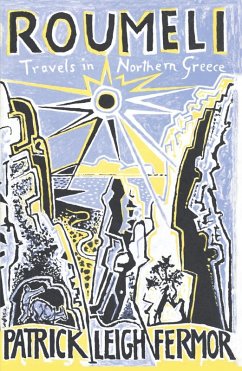
Through the Land of the Serb (eBook, ePUB)
A Journey through Serbia's Cultural Heritage and Folklore
Versandkostenfrei!
Sofort per Download lieferbar
1,99 €
inkl. MwSt.
Weitere Ausgaben:

PAYBACK Punkte
0 °P sammeln!
In "Through the Land of the Serb," M. E. Durham offers a compelling narrative that weaves together her meticulous observations of Serbia during the early 20th century. This travelogue, rich in ethnographic detail and infused with a lyrical prose style, immerses readers in the vibrant tapestry of Serbian culture and landscape. Durham deftly captures the complexities of the political climate of the time, alongside personal anecdotes that reveal the intricate lives of the people she encounters. The book stands as both a historical document and a personal reflection, inviting readers to engage wit...
In "Through the Land of the Serb," M. E. Durham offers a compelling narrative that weaves together her meticulous observations of Serbia during the early 20th century. This travelogue, rich in ethnographic detail and infused with a lyrical prose style, immerses readers in the vibrant tapestry of Serbian culture and landscape. Durham deftly captures the complexities of the political climate of the time, alongside personal anecdotes that reveal the intricate lives of the people she encounters. The book stands as both a historical document and a personal reflection, inviting readers to engage with Serbia'Äôs national identity and its challenges during a transformative period in European history. M. E. Durham, an accomplished British traveler and writer, was deeply influenced by her experiences in the Balkans, which diversified her understanding of Eastern European cultures. Her academic background and her adventurous spirit drove her to explore the region not just as an observer, but as an active participant in its rich cultural exchange. This work reflects her earnest ambition to shed light on the often-misunderstood narratives surrounding the Serbian people during tumultuous times. Highly recommended for those interested in travel writing, cultural history, and Balkan studies, "Through the Land of the Serb" offers invaluable insights into a region that remains pivotal to understanding European identity. Readers will find themselves not only informed but also captivated by Durham'Äôs vivid portrayals, making it an essential addition to any scholarly library.
Dieser Download kann aus rechtlichen Gründen nur mit Rechnungsadresse in A, B, BG, CY, CZ, D, DK, EW, FIN, F, GR, H, IRL, I, LT, L, LR, M, NL, PL, P, R, S, SLO, SK ausgeliefert werden.













